The Rosemary Pountney Collection at the University of Reading
The Rosemary Pountney Collection at the University of Reading
A Guest Blog by Professor Jonathan Heron (University of Warwick)
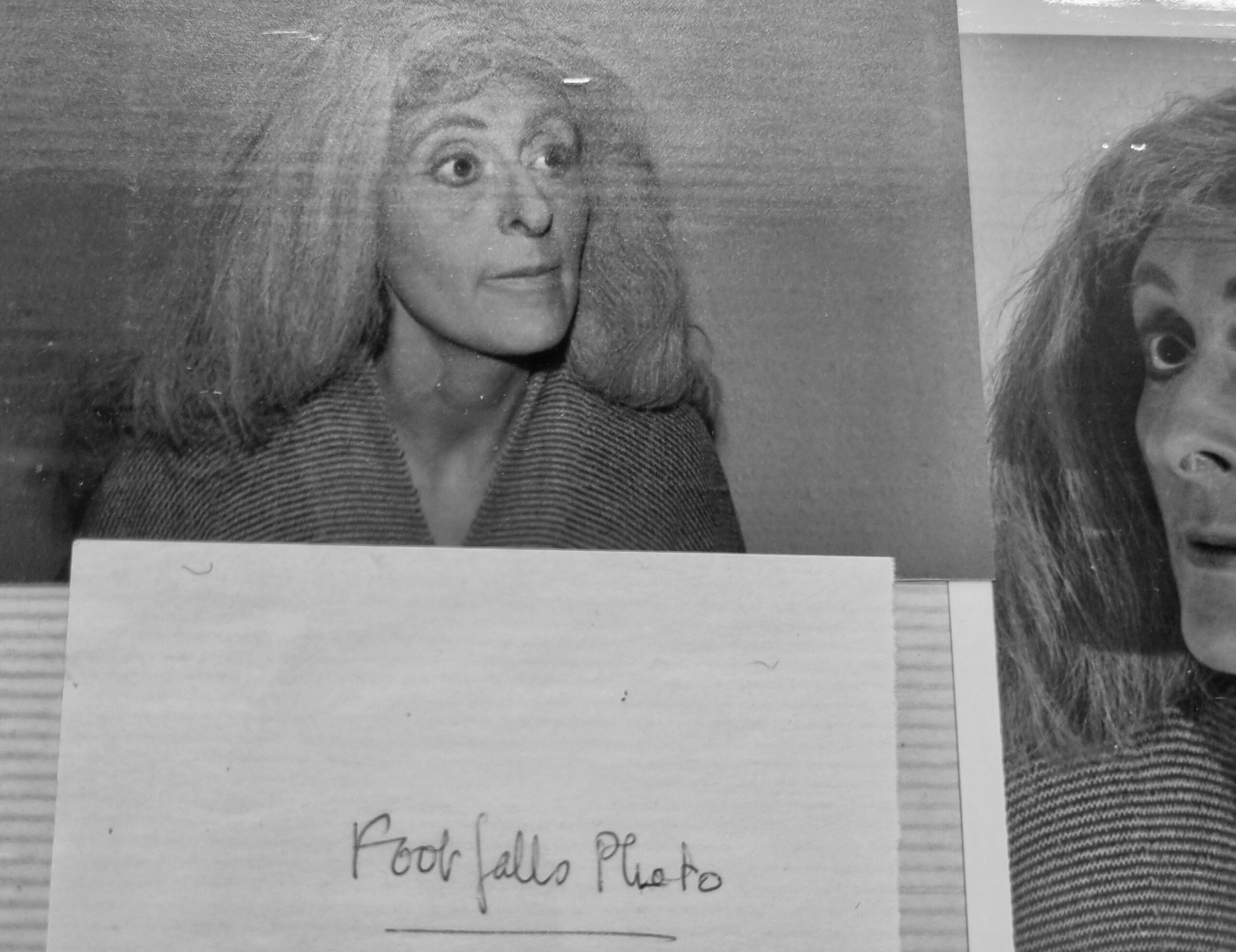 [Image 1: Production photo of Rosemary Pountney, Footfalls, 1978, image by author]
[Image 1: Production photo of Rosemary Pountney, Footfalls, 1978, image by author]
In the early hours of 20 March 2024, Rosemary Pountney’s recorded voice gave the 250,000th reading of Lessness by Samuel Beckett, some eight years since she passed. The online project End/Lessness has been running since 2017, and is available here as an indefinite memorial to her work on Beckett’s writing: [weblink].
Rosemary was a friend, colleague, mentor and collaborator who offered me guidance during my doctoral years and taught me much about performing and reading Beckett’s writing. Between 2009 and 2015, I was able to work alongside her in Oxford, Southampton, Warwick and York. In 2012 I acted as her associate director on a revival of Footfalls and Rockaby for DNS Bergen in Norway which we rehearsed in Oxford and then transferred to Trinity College Dublin as part of the annual Samuel Beckett Summer School. Throughout this period, she supported my own development as a theatre practitioner, giving notes on my theatre company’s 2009 revival of Rough for Theatre II and Ohio Impromptu, advising me on aspects of my own academic research and professional practice, and we recorded her reading of Lessness at Warwick Arts Centre in 2010, which forms the basis of the End/Lessness project, which has been described by Laura Salisbury as follows:
[The piece] uses recordings of the actor and Beckett scholar Rosemary Pountney reading out the sections from Lessness that are then played out according to computer pseudo-random generation. The possibility of ghostly endurance is particularly emphasised by the fact that the pieces of text were recorded when Pountney knew her death was imminent. But the piece is also not quite endless. Computer systems are not energyless or workless, despite an imaginary dominated by matter seemingly becoming immaterial – clouds and the ether. The material server power that underpins End/Lessness and our access to it puts back in work and organising energy into the online world and the online text; at least temporarily, it therefore opposes the thermodynamic movement towards disorder and heat death. (Salisbury, 2023)
I have written about the genesis of the work in terms of recalling Coetzee’s 1973 essay on Lessness as ‘linguistic game’, which we moved online as an ‘endless’ – If not infinite – sound installation (after Haahr and Drew, 2000):
In our collaboration with James Ball (creator of the ‘disorder algorithm’ and the website itself) we used the computational model of time to play every permutation of the sentences, without repetition, from 2017 until completion. Ball describes this process as follows: ‘to be able to create an iteration is one thing, but to be able to be sure that it hasn’t already happened is another… so the way of doing it is to make it pseudo-random… a pre-existing sequence that would carry on for a long time and would never repeat… so time’ (unpublished interview). This focus on temporal permutation, rather than textual re-iteration, resonates with Coetzee’s notion of the text as ‘linguistic game’ as well as other Beckettian permutations in performance. (Heron, 2018).
For Salisbury, our project extends our understanding of literary text in terms of its extended temporality and its cyclical, digital materiality for those who listen online.
The losses over time are also real and can be measured through intensity and affect. Rosemary is gone, which pains those who knew her, even as traces of her live on. Despite the repeated term ‘endlessness’, then, both Heron’s and Pountney’s End/Lessness and Beckett’s Lessness are only theoretically negentropic. The material text as given, as produced, published and read by material bodies, indeed suggests a time that inches forwards rather than repeats endlessly, backwards as forwards, through randomly generated equivalence. Instead, it is the intensity of lessness in the shadow of endlessness that is evoked: an anachromistic grey of modulating intensities. A grey on grey instance of difference is momentarily subtracted from endless grey, endless indifference, and gathered in a textual word heap. (Salisbury, 2023)
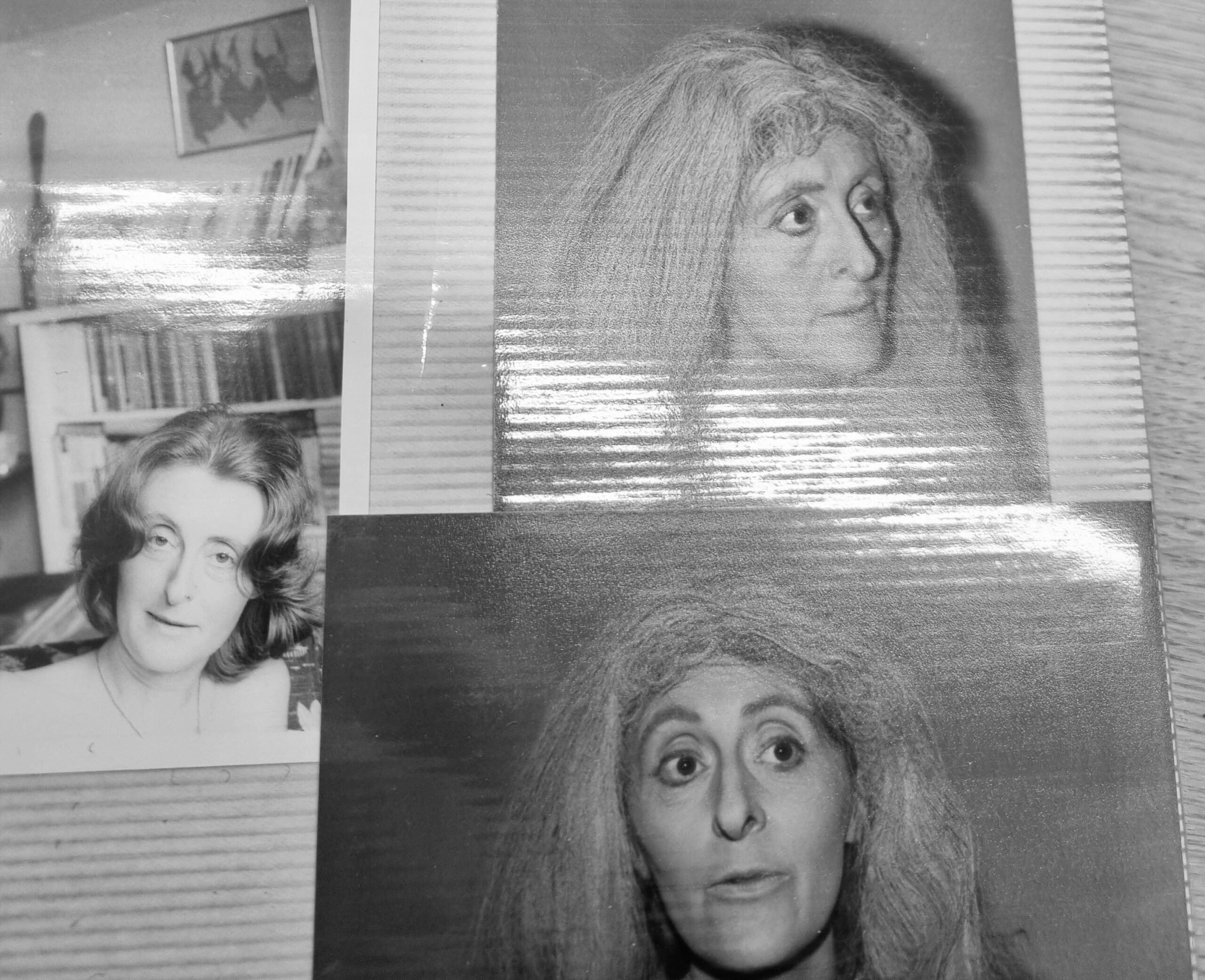 [Image 2: Production photo of Rosemary Pountney, Footfalls, 1978, image by author]
[Image 2: Production photo of Rosemary Pountney, Footfalls, 1978, image by author]
Special Collections at the University of Reading have completed a full box list of the Rosemary Pountney collection, ahead of a cataloguing process to follow. The collection is unique within Beckett studies, forming a body of work in practice and research from the 1970s to the 2010s. Her collection contains the first doctoral thesis on Beckett at the University of Oxford, submitted in 1978, which informed her monograph Theatre of Shadows (1988) alongside significant correspondence with Barbara Bray and others over many decades. Her productions of Not I, Footfalls and Rockaby are extensively documented in files, photographs and video, with a rich collection of sound media across multiple formats, covering the period 1978—2015. It is extremely rare to have one actor’s voice performing the same texts across such an extended period of theatre history and therefore there is potential for future research projects on this aspect of the archive. As Diana Taylor has shown, there is a tension ‘between the archive of supposedly enduring materials (i.e. texts, documents, buildings, bones) and the so-called ephemeral repertoire of embodied practice/knowledge (i.e. spoken language, dance, sports, ritual)’ (2003:19).
The materiality of the performance archive has been captured and celebrated elsewhere (e.g. Heron and Johnson, 2014; Johnson and Heron, 2020), but this is perhaps best documented in Rosemary’s own words (Pountney, 2014):
I first played May in Footfalls at the Dublin Theatre Festival in 1978, directed by Peter O’Shaughnessy. Rachel Burrows (one of Beckett’s Modern Language students at Trinity College Dublin) played V. In 1980 we performed the play again at Oxford Playhouse, directed by Gordon MacDougall. This production was revived in 1981 and, after performances at University College Dublin, was taken to the Beckett conference at Ohio State University, where it was performed with the world premiere of Ohio Impromptu and A Piece of Monologue with David Warrilow. Since Rachel Burrows was unable to fly to the USA for medical reasons, I had to perform May with V as a recorded voice, and it was fiendishly difficult to synchronise my replies and footsteps with the vocal cues. When in 2011 I was invited by the Norwegian National Theatre and the University of Bergen to perform Rockaby/Berceuse, a further play was required to complete the evening and I began to consider whether it might be possible to do another experimental Footfalls. A Bergen experiment would need to be far more radical than the Ohio performance, since I had developed bone problems and was unable to walk without a stick. In the original production I had been directed to pace rather like a lion in a cage. (Pountney, 2014)
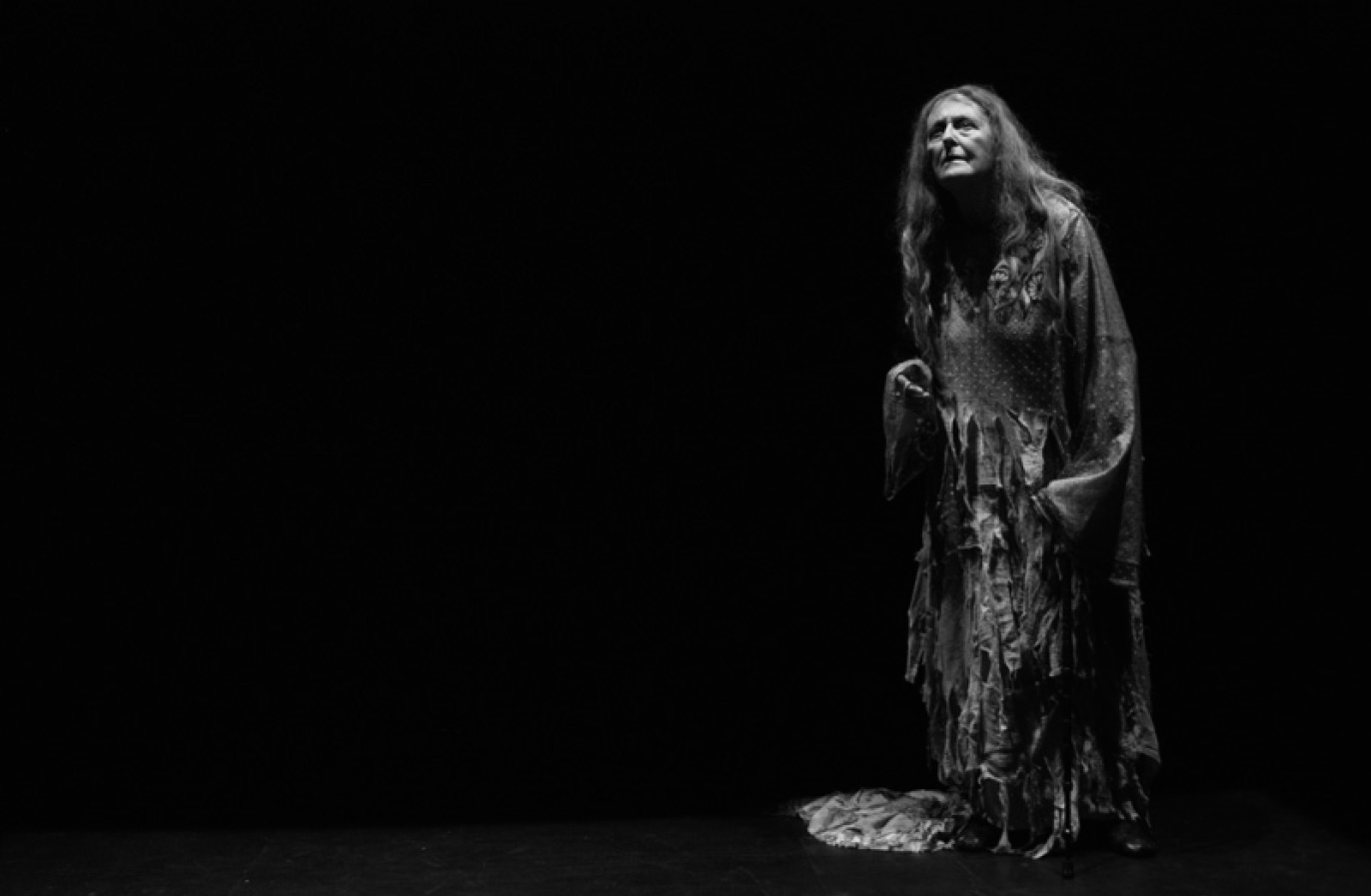 [Image 3: Rosemary Pountney, Footfalls, 2012, photograph by Jennifer Schnarr]
[Image 3: Rosemary Pountney, Footfalls, 2012, photograph by Jennifer Schnarr]
The costume matters – a tangle of tatters – recalling the materiality of Beckettian productions in this first wave of work, which therefore allows for new comparative research when we consider the other collections available at Reading, especially the materials relating to Billie Whitelaw and Jocelyn Herbert as well as Katherine Worth. What is worn is important – even when it is worn out – where the embodiment of the performer co-constructs theatre histories and our understanding of the texts themselves, which brings to mind Anna McMullan’s account of the materiality of Beckettian embodiment: ‘[the body] is presented as both sign and site, engine or matrix of production (of stories, semblances, voice, footfalls or hiccups) and fabric to be composed and recomposed with limited materials’ (2010, 125, emphasis added).
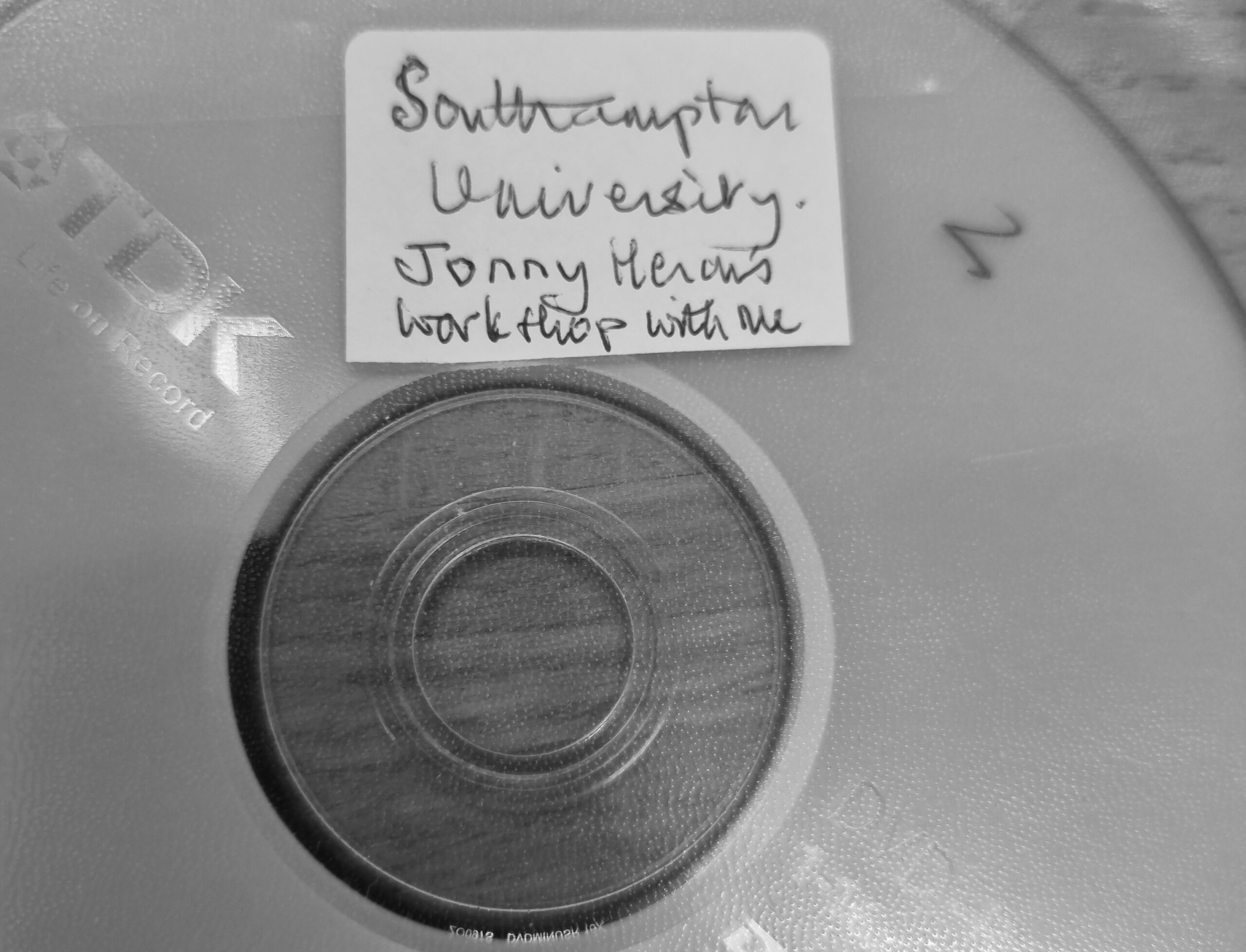 [Image 4: DVD handwritten note by Rosemary Pountney, image by author]
[Image 4: DVD handwritten note by Rosemary Pountney, image by author]
… so here I am … at the MERL in March… such a feeling buzzing between me… that sense of recognition… of self and community… the dense tangles of archival material… the box waiting patiently on the table… pencils to leave lessened traces upon items stored… so carefully curated by Rosemary herself… as she battled her illness… the box list leading me to memories of our workshops… my own writing and hers on discs and files… my illegible surname scribbled on a sticker… that time on the Solent with her and Julie… those students hearing her voice for the first time… that time on the Thames with her and Peter… and those profounds of mind… when reaching for the last file… underneath the letters to Barbara… now there’s a thing… an image floating at the bottom of the box… a card I had written towards the end… kept, collected and collated… I did not know that it was here… but there it is… the two of us in a box listed… so there we are…
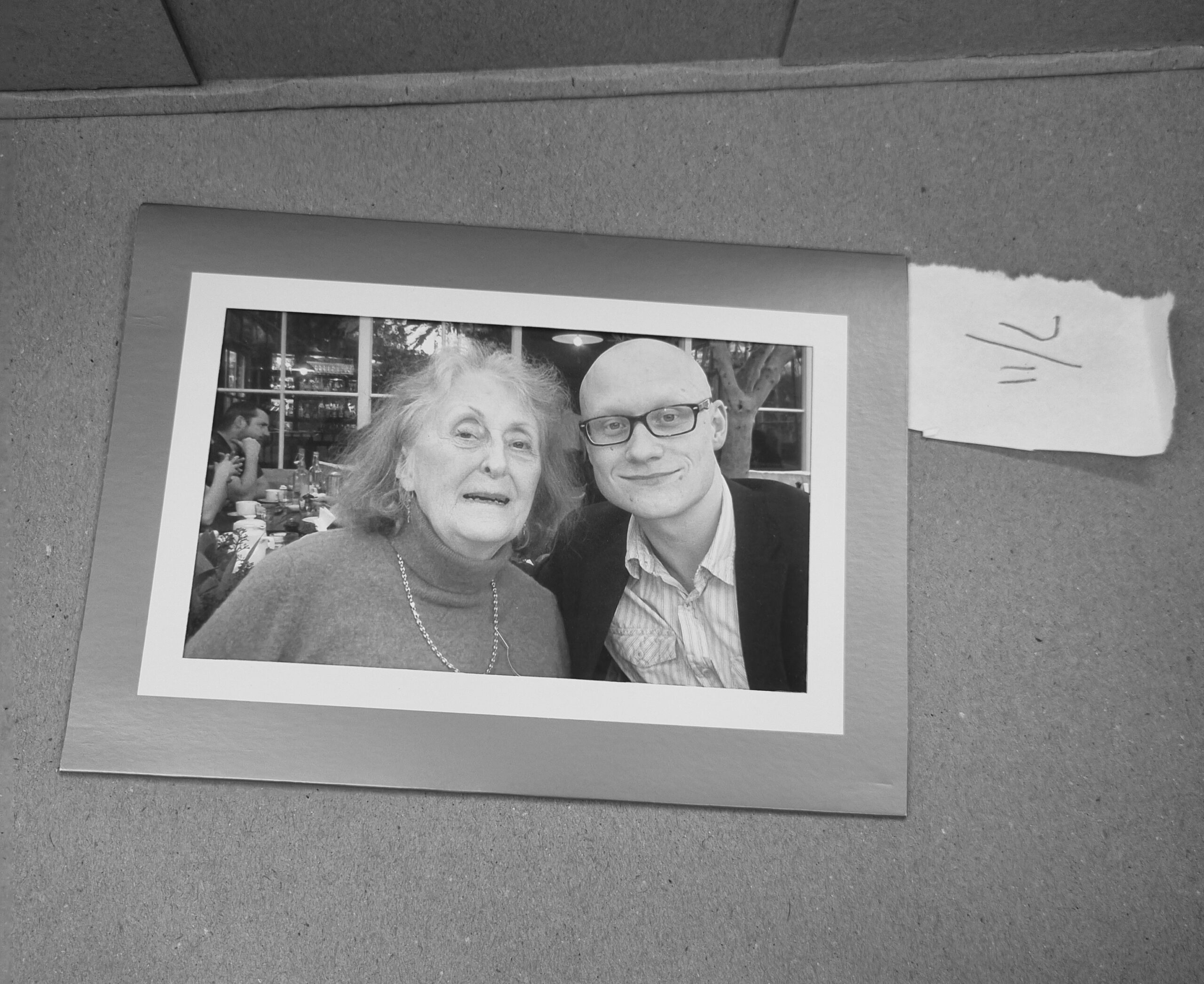 [Image 5: photograph found at the bottom of the archive box, image by author]
[Image 5: photograph found at the bottom of the archive box, image by author]
For more information on the actor and scholar Rosemary Pountney, see here: https://research.reading.ac.uk/staging-beckett/interview-rosemary-pountney/
Works Cited
Coetzee, JM (1973) ‘Samuel Beckett’s Lessness: An Exercise in Decomposition’, Computers and the Humanities, Vol. 7, No. 4, pp. 195-198.
Haahr and Drew (2000) ‘Possible Lessnesses’, https://www.random.org/lessness/
Heron, Jonathan (2018) ‘End/Lessness’ in Contemporary Theatre Review: Interventions, https://www.contemporarytheatrereview.org/2018/end-lessness/
Heron, Jonathan and Johnson, Nicholas (2014) “‘First both’: Introduction to ‘the Performance Issue.’” Journal of Beckett Studies 23:1, Edinburgh: Edinburgh University Press.
Johnson, Nicholas and Heron, Jonathan (2020) Experimental Beckett: Contemporary Performance Practices, Cambridge: Cambridge University Press.
McMullan, Anna (2010) Performing Embodiment in Samuel Beckett’s Drama. London & New York: Routledge.
Pountney, Rosemary (1988), Theatre of Shadows: Samuel Beckett’s Drama 1956–76, Buckinghamshire: Colin Smythe.
Salisbury, Laura (2023) ‘Grey Time: Anachromism and Waiting for Beckett’ in Grey on Grey: At the Threshold of Philosophy and Art’ ed. Vellodi & Vinegar, Edinburgh: Edinburgh University Press.
Taylor, Diana (2003), The Archive and the Repertoire: Performing Cultural Memory in the Americas, Durham, NC: Duke University Press.

Beckett International Foundation Seminar – Registration
Beckett International Foundation Seminar
Minghella Studios, University of Reading, 4 November 2023
Registration for the BIF seminar on Saturday 4 November 2023 is now available here.
As in previous years, our speakers represent a mixture of early career researchers as well as established scholars, local and international, reflecting current research into Beckett’s work. We hope that the programme will, as in the past, attract a wide and varied audience.
Programme
10.30 – 11.00: Registration / Welcome
11.00 – 11.30: Xander Ryan (University of Reading): ‘From Little Jerusalem to the Paris Conservatoire: Samuel Beckett, Leslie Daiken, Melanie Daiken’
11.30 – 12.00: Discussion
12.00 – 12.15: Tea / Coffee Break
12.15 – 12.45: Velibor Topic (Actor): ‘Waiting for Godot in Sarajevo: Reflections 30 Years On’
12.45 – 1.15: Discussion
1.15 – 2.15: Lunch
2.15 – 2.45: Elizabeth Barry (University of Warwick): ‘“The Protestant Thing to Do”: Beckett, Charity and the Ambivalent Work of Social Care’
2.45 – 3.15: Discussion
3.15 – 3.30: Tea / Coffee Break
3.30 – 4.00: Hannah Simpson (University of Edinburgh): ‘Samuel Beckett and Disability Performance’
4.00 – 4.30: Discussion
To attend this year’s BIF Seminar, please register here: https://www.store.reading.ac.uk/conferences-and-events/faculty-of-arts-humanities-social-science/english-literature-department/beckett-international-foundation-research-seminar-2023
We look forward to seeing you there!

Beckett International Foundation Seminar – 4 November 2023
We are pleased to announce that the 33rd BIF Seminar will take place at the University of Reading on Saturday 4 November 2023, with the following speakers:
Elizabeth Barry (University of Warwick): ‘“The Protestant Thing to Do”: Beckett, Charity and the Ambivalent Work of Social Care’
Xander Ryan (University of Reading): ‘From Little Jerusalem to the Paris Conservatoire: Samuel Beckett, Leslie Daiken, Melanie Daiken’
Hannah Simpson (University of Edinburgh): ‘Samuel Beckett and Disability Performance’
Velibor Topic (Actor): ‘Waiting for Godot in Sarajevo: Reflections 30 Years On’
Further details re timings and how to register will be sent out later this week. Please save the date, and we hope to see you at the seminar!

Update on the Solange and Stephen Joyce Archive at the University of Reading
We write to provide news of progress about the acquisition of the Joyce archive at Special Collections, University of Reading. This progress has been somewhat hampered by delays outside of our control, beyond our previous announcements of a schedule for curating the archive and opening it for public viewing; therefore, we thought it helpful to provide this update.
Work began last year on curating and cataloguing the materials then arrived in Reading, including the correspondence and family documents and photographs. The University has also employed a qualified postdoctoral researcher to conduct an initial scoping of the materials and to input to the cataloguing process.
However, customs delays meant that the portion of the archive coming from France only arrived in Reading in late April this year. This means that we have put in place a new timetable for making the collection available to the public and launching the materials for research:
- 26th September 2023 – 2 February 2024. Small exhibition of rare books, art works and artefacts;
- Autumn 2023. Full access to published materials in the Joyce Open Access Room, a dedicated space alongside our extant Samuel Beckett Open Access collection. Rarer books will be available on request via the Reading Room;
- December 2024/January 2025. Launch event for the archival materials and letters in Reading; publication of a physical catalogue alongside the web-based catalogue, with full descriptive content. Opening of archive for researcher use;
- Summer 2026 Conference about the archive with invited speakers and CFP.
Please address any enquiries to Steven Matthews, Co-Director of the Samuel Beckett Research Centre, at s.matthews@reading.ac.uk
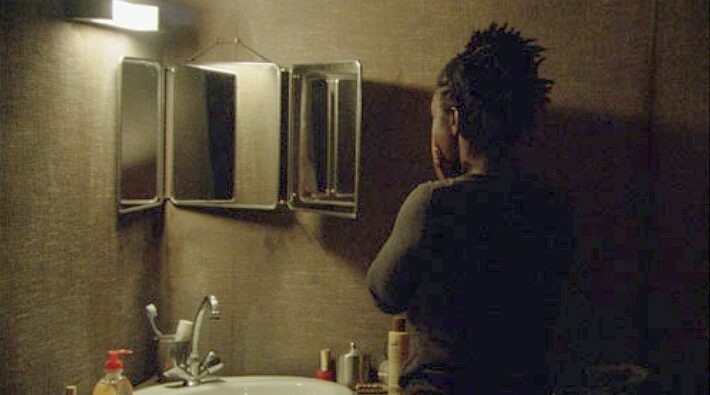
Screening: Samuel Beckett and Artists’ Cinema
Beckett’s work has inspired many contemporary visual artists, but in recent years it has been the area of artists’ film that has seen the clearest impact.
On Friday 23rd of June 2023, The Samuel Beckett Research Centre at the University of Reading will present rarely screened work by several artists. The screenings will be followed by a roundtable discussion and the launch of Samuel Beckett’s Afterlives: Adaptation, Remediation, Appropriation, the recent collection of essays edited by Jonathan Bignell, Anna McMullan and Pim Verhulst.
The programme for the event includes:
Introduction by Conor Carville
Stan Douglas, Vidéo (2007): Introduced by Pim Verhulst.
Stan Douglas’ video installation Vidéo is a reimagining of both Orson Welles’s film “The Trial” (based on Kafka’s novel of the same name) and Beckett’s film “Film”.
John Gerrard, Bone Work (Gulf of Mexico) (2022): Introduced by John Gerrard (Via Zoom).
John Gerrard’s Bone Work (Gulf of Mexico) is a simulation centred on sixteen fragments of dead coral found by the artist on the shores of the Yucatán Peninsula on the Gulf Of Mexico.
Duncan Campbell, o Joan, no…(2006): Introduced by Duncan Campbell.
Duncan Campbell’s o Joan, no…(2006) is a short film drawing on the lighting directions and effects in Beckett’s Play.
Roundtable Discussion on Beckett, Artists’ Film/Installation and Adaptation.
Jonathan Bignell (Reading); Pim Verhulst (Antwerp); Duncan Campbell; David Houston Jones (Exeter); Anthony Paraskeva (Roehampton); Derval Tubridy (Goldsmiths); Jivitesh Vashisht (UCD).
The screenings will begin at 2:00pm in Minghella Studios’s cinema at the University of Reading, with the roundtable discussion beginning at 4:30pm. The event will be followed by a reception at 6:00pm.
The event is free, and all are welcome, but places are limited, so please register here. More details of timings and participants to follow.
Image: Stan Douglas. Vidéo, 2007. High definition video installation, colour, sound (six musical variations. Courtesy the artist, David Zwirner New York/London, and Victoria Miro, London.

Samuel Beckett & Japan: A Virtual Seminar Series
Samuel Beckett & Japan: A Virtual Seminar Series
Seminar 3:
Saturday 11th March 2023 (via MS Teams)
10-11.30am Dublin/London; 11am-12.30pm CET; 7-8.30pm Tokyo
Please join us for the third session in this seminar series examining aspects of the reception of Samuel Beckett’s work in Japan. The history of Beckett in this region includes performance practices that have introduced (and adapted) Beckett’s work for Japanese theatre, translations of Beckett’s work into Japanese since the 1950s, and important scholarly interventions into the field. There is a rich record of scholarship emerging from Japan that has expanded the global reach of our understanding of Beckett. The foundational scholarly and translation work of Professors Shin’ya Ando and Yasunari Takahashi exemplifies this, as does the work of the Beckett Research Circle of Japan, which was founded in 1992 and continues Japanese critical engagements with Beckett. This seminar series seeks to mark these histories of Beckett’s presence in Japanese culture, as well as explore the significance of Japanese thinking and performance practices on our understanding of Beckett.
This series is presented by the Samuel Beckett Working Group at IFTR and the School of Arts, English and Languages at Queen’s University Belfast.
Mariko Hori Tanaka, ‘Samuel Beckett and Tadashi Suzuki’
Tadashi Suzuki, a world-famous director known for his eponymous training method, remarks that he was influenced by Samuel Beckett. Though he himself has not undertaken to direct Beckett, he uses scenes from Beckett in his directorial work.
Suzuki, along with other young Underground artists, resisted the establishment and questioned the status quo and rationality in general, expressing madness and indecency. The impetus of that resistance came out of feelings of defeat within the political movements of the 1960s to make societal change. The dream of their revolution did not come true and this sense of defeat, despair and hopelessness were presented by Underground artists. Suzuki admits that his characters, whether they are in Greek plays or Shakespeare, are ‘fight[ing] the battle of the defeated’ (Suzuki, The Way of Acting, 110). Suzuki’s theatrical works and his emphasis on stamping functioned as the recovery of the body and the spirit that have been estranged since the Meiji era. There are comparable approaches to the body in the work of each of these artists; what Suzuki demands is similar to what Beckett seeks from actors. In this talk, I will explore how Beckett is influential in Suzuki’s work and how Suzuki’s directorial method and philosophy are akin to what Beckett demands of his actors.
Douglas Atkinson, ‘Saying I: Beckett and Modern Japanese Literature’
The goal of this paper is to explore a very peculiar phenomenon in Beckett scholarship, namely, the perplexing reception of Beckett’s prose in Japan. As Tajiri Yoshiki has demonstrated, in contrast to the reception of his theatrical works, Beckett’s prose has played only a minor role in 20th century Japanese Literature, with few if any major authors acknowledging the influence of Beckett’s prose. Given the stated centrality of the prose in regard to his own work, this response is strange enough. However, when we scratch beyond the surface of Modern Japanese Literature, the absence of a meaningful response to Beckett’s prose shows the signs of a deeper, and potentially darker, mystery to be solved.
As such, this paper will follow the work of Karatani Kojin and other major thinkers in Modern Japanese Literature in an attempt to situate – thematically and historically – what I have termed the ‘non-reception’ of Beckett’s prose in Japan. My primary focus will be to show the striking similarities between Beckett’s prose and the Japanese shishōsetsu, or “I-Novel”, in order to forge a new vantage from which to contextualize the (non)reception of Beckett’s prose in Japan.
To attend this session please book via the following link, the meeting link will be circulated shortly before the session:
https://www.eventbrite.co.uk/e/samuel-beckett-japan-a-virtual-seminar-series-tickets-546224822147
Series Organisers: Mariko Hori Tanaka (Aoyama Gakuin University, Tokyo), Michiko Tsushima (University of Tsukuba), Kumiko Kiuchi (Tokyo Institute of Technology), Yoshiko Takebe (Shujitsu University), and Trish McTighe (Queen’s University Belfast).
For queries relating to the event and booking please contact t.mctighe@qub.ac.uk.
Speaker Biographies
Mariko Hori Tanaka is a professor at Aoyama Gakuin University. She has published essays and book chapters on Samuel Beckett and other playwrights. She co-edited Samuel Beckett and Pain (Rodopi, 2013), Samuel Beckett and Trauma (Manchester UP, 2018), Influencing Beckett / Beckett Influencing (L’Harmattan, 2020), Beckett’s Voices / Voicing Beckett (Brill, 2021) and Samuel Beckett and Catastrophe (Palgrave McMillan, 2023). In Japanese, she has authored Beckett Junrei [Beckett Pilgrimage] (Sanseido, 2007), Kaitei o Kasaneru Godot o Machinagara: Enshutsuka to shite no Beckett [Revised Versions of Waiting for Godot: Beckett as a Director] (Fujiwara-shoten, 2017).
Douglas Atkinson teaches at the Vrije Universiteit Brussel where he lectures in critical thinking, rhetoric, and academic composition. He holds a PhD in philosophy and specializes in 20th century Continental Philosophy, with an emphasis on the intersection between philosophy and literature. His research focuses primarily on the philosophic import of Maurice Blanchot and his influence on the philosophy of language. His most recent publications have appeared in Twentieth-Century Literature and Samuel Becket Today/Aujourd’hui, and he has organized conferences on Samuel Beckett and the Nonhuman and Samuel Beckett and the Anthropocene. He is currently working on a critical rereading of the Japanese reception of Samuel Beckett’s prose.

The University of Gdańsk Samuel Beckett Seminar 2023
The University of Gdańsk Samuel Beckett Seminar 2023
Who Wrote Godot?
18-19 May 2023
University of Gdańsk, Poland
The title of the seminar – Who Wrote Godot? – was suggested by Professor S.E. Gontarski (Florida State University, USA). During the seminar, he will be in Gdańsk/Sopot to launch his new book Bad Godots: “Vladimir enters from the barrel” and other Interventions, published in the Cambridge University Press “Elements in Beckett Studies” series. Professor Gontarski’s keynote address will be followed by a showing of the films and documentaries in which he has been involved since the early 1980s. We invite scholars who are eager to share their current work on Beckett in a variety of (global) contexts. We suggest that the question posed in the seminar title and in the following note by Professor Gontarski might trigger papers and discussions of a variety of works, in a variety of ways, and through a variety of approaches.
“Who, finally, wrote the script for the Waiting for Godot we are reading, or who ‘authored’ the performances we watch? The answer may depend on what one means by such a question, which edition one is holding, say, or how much attention the producer and director (at least) have paid to the script they at least began with before other theatrical professionals – producers, designers, directors, actors, and investors – entered the scene? Some texts of Beckett’s first produced play were censored, others localized, overtly re-written, and, as published, these remain in circulation, part of the marketplace amid serial reprints and resales. They are seldom withdrawn or destroyedfor reasons of corruption or infidelity, and so they remain in circulation, sitting in libraries, school closets and on personal bookshelves to be lent to friends and reused for performances.
The alterations in these texts may be minor on the whole, but they are almost never inconsequential. ‘French’s’ or ‘Samuel French’s Acting Editions’ are high water marks of textual corruption, the product of unauthorized intervention even as they have attracted little attention from Beckett scholars. Minor as each may be individually, the range of these alterations is vast, as Beckett’s terse, astringent prose is continually inflated, the silences rendered less so. In the London premieres, for example, the sparse, arid set is littered with a barrel, cattails, hanging vines, ‘A rostrum’, and other cluttering ‘details’ – some of Pozzo’s whip-wielding cruelty is eliminated. As strangers approach, our two waiters ‘huddle together, behind the barrel’ (SF 10). What barrel? Who wrote this? Not Beckett! But this is the text as performed in London in 1955 and subsequently published repeatedly.
While all theatrical performance is subject to variation – from show to show, from theatre space to theatre space, from night to night, from actor to replacement actor – so that all performance is adaptation, to one degree or another, but the degree of variation, the differences between the contingencies of performance, the failures of memory, say, and the deliberate reconfiguration of a script and its staging are the issues at play here. The productions of Waiting for Godot that premiered in London at both The Arts (August 1955) and Criterion Theatres (September 1955-March 1956) and the Dublin premiere at the Pike Theatre (October 1955) were co-authored texts, as was the American premiere that opened in Coral Gables, Florida, in January of 1956 – each director tampering with, localizing, regularizing, stamping the text as his own by intervening and altering in the script far beyond what the author would deem acceptable (if he knew). Both credited (the LC in the UK) and uncredited interventionists (producers, directors, and actors on both sides of the Atlantic) shaped and altered what audiences saw in performance, some of what was subsequently and repeatedly published.” (S.E. Gontarski)
Confirmed keynote speakers for the seminar are:
• Professor Octavian Saiu (Hong Kong Metropolitan University): Rereading,
Rewriting, Reimagining Beckett: Text and Context Beyond the Canon;
• Professor Robson Corrêa de Camargo (Federal University of Goiás, Brazil): Samuel
Beckett and Maskara at the Brazilian Savannah: Lost and Found.
In addition to the above, Dr hab. Tomasz Wiśniewski, Prof. UG, will discuss two recent productions Zé Celso’s Esperando Godot by Teatro de Oficina Uzyna Uzona (São Paulo, Brazil) and Jarosław Fret’s Back to Beckett by Teatr ZAR / The Grotowski Institute (Wrocław, Poland) as examples of experimental Beckett for the present times.
The University of Gdańsk Samuel Beckett Seminar is part of the Between.Pomiędzy Dispersed Festival, which also includes the conference The Geography of the Theatre Imagination (18-20 May 2023), performance workshops run by Katarzyna Pastuszak, open discussions with Teatr Amareya and the Sopot Dance Theatre, and other events. For more information on Between.Pomiędzy see: www.between.org.pl
We invite proposals for 15-minute papers that provide insight into current Beckett scholarship.The deadline for a 200 word proposal is 15 March 2023 (tomasz.wisniewski@ug.edu.pl). The seminar fee is 200 PLN / 50 euros.
The conference is organised by the Beckett Research Group in Gdańsk (University of Gdańsk) in partnership with TheTheatreTimes, The Grotowski Institute in Wrocław, and Teatr ZAR.
The Beckett Research Group in Gdańsk was founded and is led by Dr hab. Tomasz Wiśniewski, Prof. UG. It is affiliated to the Department of Theatre Arts in the English and American Studies Institute at the University of Gdańsk. It brings together people in English, Romance, and Polish studies and artists from various centres in Poland and abroad. Its honorary patron is Professor S.E. Gontarski of Florida State University in the USA. BRGiG works together with Beckett scholars from Poland and the world (Trinity College Dublin in Ireland, the Federal University of Goiás in Brazil), and with translators and artists engaging in work related to Beckett. Indeed, the encounter of academic and creative worlds – searching for varied and not always complementary ways of seeing Beckett’s work – is the main axis of the activities of BRGiG. We organize regular Beckett seminars in the Three Cities area, and also theatre workshops/laboratories and discussions with poets, writers, film makers, and theatre workers. We also engage in publishing activities and support various artistic projects. In 2012, the collections of essays Samuel Beckett. Tradycja-awangarda, and Back to the Beckett Text opened the Between.Pomiędzy series published by the University of Gdańsk Press. In 2017, the eleventh volume in the series appeared, entitled Beckett w XXI wieku. Rozpoznanie. In 2016, from Maski publishers, the book Przedstawienie Becketta (Representing Beckett) appeared, containing Polish translations of essays by S.E. Gontarski. Cooperation with the Sopot Dance Theatre has led to the production Wszystko co widać. Ohio, and the film All This This Here. Professor Gontarski’s laboratory work from the Festival is documented in the film “…but the clouds…,” which has been shown in Poland and the USA, during the Beckett Summer School at Trinity College Dublin, and at the Charles University in Prague. In 2010, the documentary film Back to the Beckett Text (Beckett na Plaży) appeared, and at the 2019 Between.Pomiędzy Festival, S.E. Gontarski’s film Beckett on the Baltic had its world premiere.

Announcement: Creative Fellows 2022-2023
The Samuel Beckett Research Centre at the University of Reading is delighted to announce the appointment of two new Creative Fellows 2022-23: Claire-Louise Bennett and Simon Okotie.
Claire-Louise Bennett has written two acclaimed works of fiction. Her debut Pond was published by Fitzcarraldo Editions in 2015. It was shortlisted for the Dylan Thomas Prize in 2016. In 2022 the highly-anticipated novel Checkout 19 was a pick of the year in The Guardian, The Telegraph and the New Statesman. It was shortlisted for the Goldsmiths Prize. Her short story ‘Invisible Bird recently appeared in The New Yorker.
Claire-Louise studied drama and has worked extensively in theatre, often speaking of her admiration for Samuel Beckett’s plays. Beckett’s prose too has been a major influence. In an interview in The Guardian she remarks how reading Beckett gives her ‘a sense of space and a kind of an ease, almost; you know, I don’t know if there is any kind of meaning and I don’t like to get too attached to ideas anyhow. I’m quite able to sort of just hang in a way.’ We are very pleased that Claire-Louise has taken the opportunity to hang a bit more with Beckett by engaging with Reading’s world-renowned collection of his papers.
Simon Okotie is a fiction writer and essayist. He is the author of Whatever Happened to Harold Absalon?, In the Absence of Absalon, and After Absalon, an acclaimed trilogy of novels, all published by Salt. In the Absence of Absalon was longlisted for the 2018 Republic of Consciousness Prize. Simon’s work has appeared in gorse, 3:AM Magazine, Firmament and The White Review. ‘Two Degrees of Freedom,’ a short story, is published by Nightjar Press. ‘Bindings’ was selected for the Best British Short Stories 2021 anthology.
Of the protagonist of Whatever Happened to Harold Absalon? Blake Morrison notes in the London Review of Books that ‘There’s a touch of Charlie Chaplin about him, or of John Cleese, as mediated by Beckett’. Okotie readily acknowledges the influence of Beckett on his work, and in particular the later short prose and ‘closed space’ pieces. The TLS has drawn attention to Simon’s ‘obsessive attention to the miraculous geometries of human movement’ and this is just one way in which his writing shows an affinity with Beckett’s. Simon is currently completing a novel and a collection of essays. We are very much looking forward to having him with us over the next year.
Over the course of their year-long Fellowships, Claire-Louise and Simon will engage with the contents, history and spaces of the world-leading archive relating to Samuel Beckett’s work which is held at the University’s Special Collections. Supported by colleagues at the Samuel Beckett Research Centre, through this engagement with the archives they will produce new creative work, to be premiered at the end of their time with us. Claire-Louise and Simon follow our previous fellows, Hannah Khalil, Duncan Campbell, Eimear McBride, and novelist Robert McCrum and composer Tim Parkinson, in accepting a Creative Fellowship at the Centre. We are very excited about the opportunity to work with them.

Beckett at Reading – 50th Anniversary
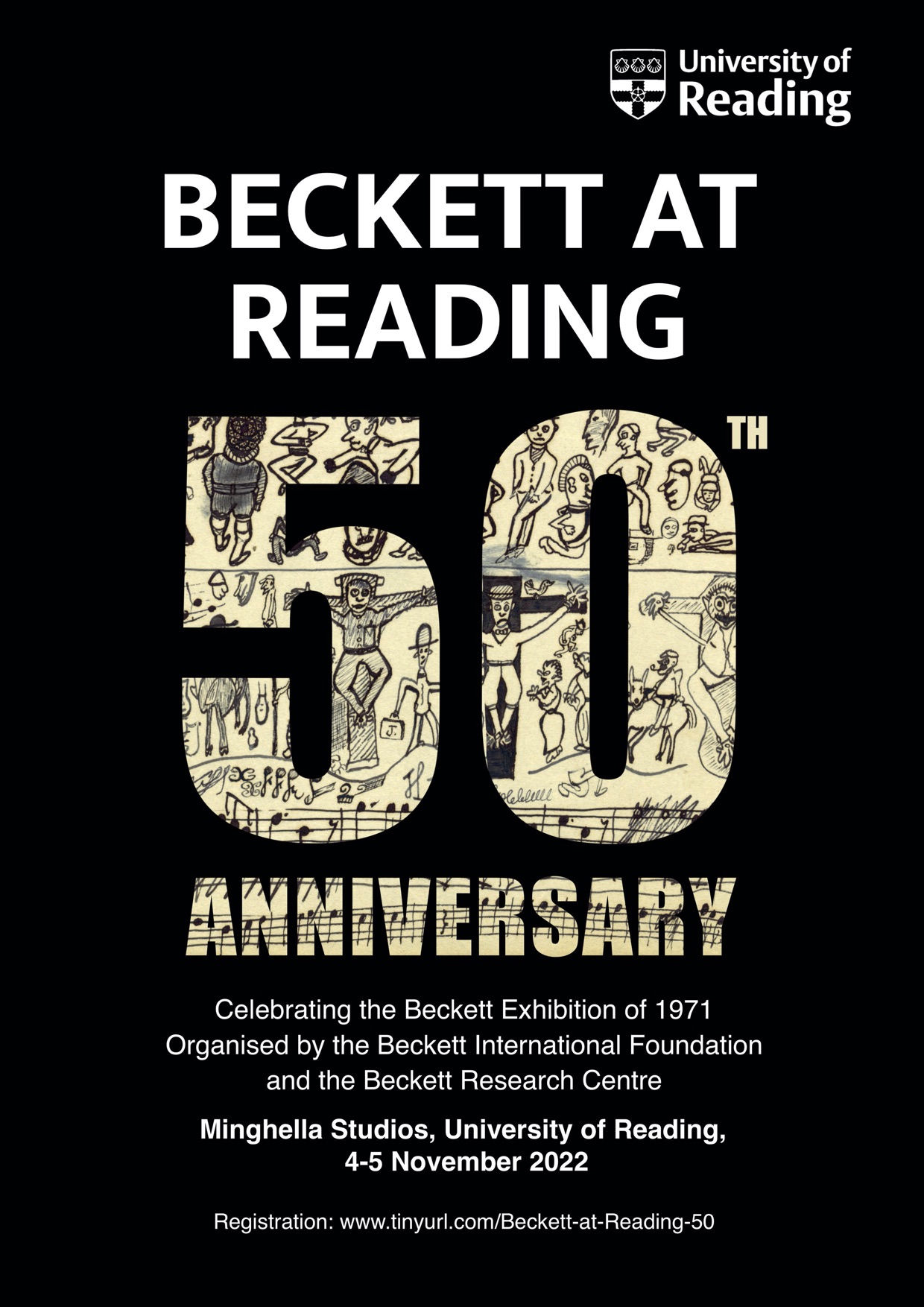
Beckett at Reading 50th Anniversary
Celebrating the Beckett Exhibition of 1971
Organised by the Beckett International Foundation and the Beckett Research Centre
Minghella Studios, University of Reading, 4-5 November 2022
Friday 4 November 2022
13.30-14.00 Coffee and Registration
14.00-14.15 Opening Words
14.15-15.00 The Billie Whitelaw and Katharine Worth Collections (Jonathan Heron and Matthew McFrederick)
15.00-15.45 Academic Projects I: Staging Beckett (Anna McMullan and Trish McTighe) and Beckett’s Doodles (Jonathan Bignell and Bill Prosser)
15.45-16.15 Coffee Break
16.15–17.15 Three Dialogues: The Beckett Archive
Guy Baxter: A Peek between the Boxes: Continuity and Change in the Beckett Archive
Derval Tubridy: Upending Ekphrasis: Beckett and the livre d’artiste
Pascale Sardin: The Beckett Archive from a French Perspective
17.15-18.00 Barry McGovern: The Archive – ‘it’s another of my resources’
[Break]
19.15-20.30 Beckett Fellowship Premiere: Hannah Khalil’s ‘The Lighthouse Keeper’s Son’ (followed by a Q&A with Hannah Khalil and Maureen Beattie)
20.30-21.30 Wine Reception and Launch of the ‘In Memory of Mary Bryden: 20th Century French Drama Collection’
Saturday 5 November 2022
12.30-13.00 Coffee and Registration
13.00-14.15 Company
Trinity College Dublin (Julie Bates with Creative Fellows)
The Beckett Circle of Japan (recording)
The Beckett Society (Laura Salisbury)
The Happy Days Beckett Festival (Sean Doran)
14.15-15.00 Academic Projects II: Beckett Digital Manuscript Project (Dirk Van Hulle and Mark Nixon) / The Samuel Beckett Letters Project (recording)
15.00-15.30 Coffee Break
15.30-16.00 The Beckett Archive through the Years (Anna McMullan / Mark Nixon
A Message from Berlin (Walter Asmus; recording)
16.00-17.00 Roundtable: Beckett Studies
(Chair: Trish McTighe; Participants: Daniela Caselli, William Davies, Hannah Simpson, Katherine Weiss, Shane Weller)
17.00-17.30 Coffee Break
17.30-18.30 The Knowlson-Beckett Interview Tapes (James Knowlson)
[Break]
19.30-20.45 Jan Jönson: ‘Moments of Reality’
20.45-21.30 Closing Remarks and Wine Reception
Exhibitions
‘Let us do something, while we have the chance.’ The Origins of Reading’s Samuel Beckett Collection, University of Reading Library, University of Reading, 27 September 2022 – 13 January 2023: https://tinyurl.com/origins-of-Beckett-at-Reading
‘A glimpse of the surface’: Samuel Beckett and Avigdor Arikha, The Museum of English Rural Life, University of Reading, 4 October 2022 – 27 January 2023: https://tinyurl.com/Beckett-and-Arikha
Registration: https://tinyurl.com/Beckett-at-Reading-50
Donations: https://tinyurl.com/donate-to-Beckett-at-Reading
Please support the activities of the Beckett International Foundation and the Beckett Research Centre by giving as much or as little as you can! Thank you.
If you have any queries, please contact Mark Nixon (m.nixon@reading.ac.uk)
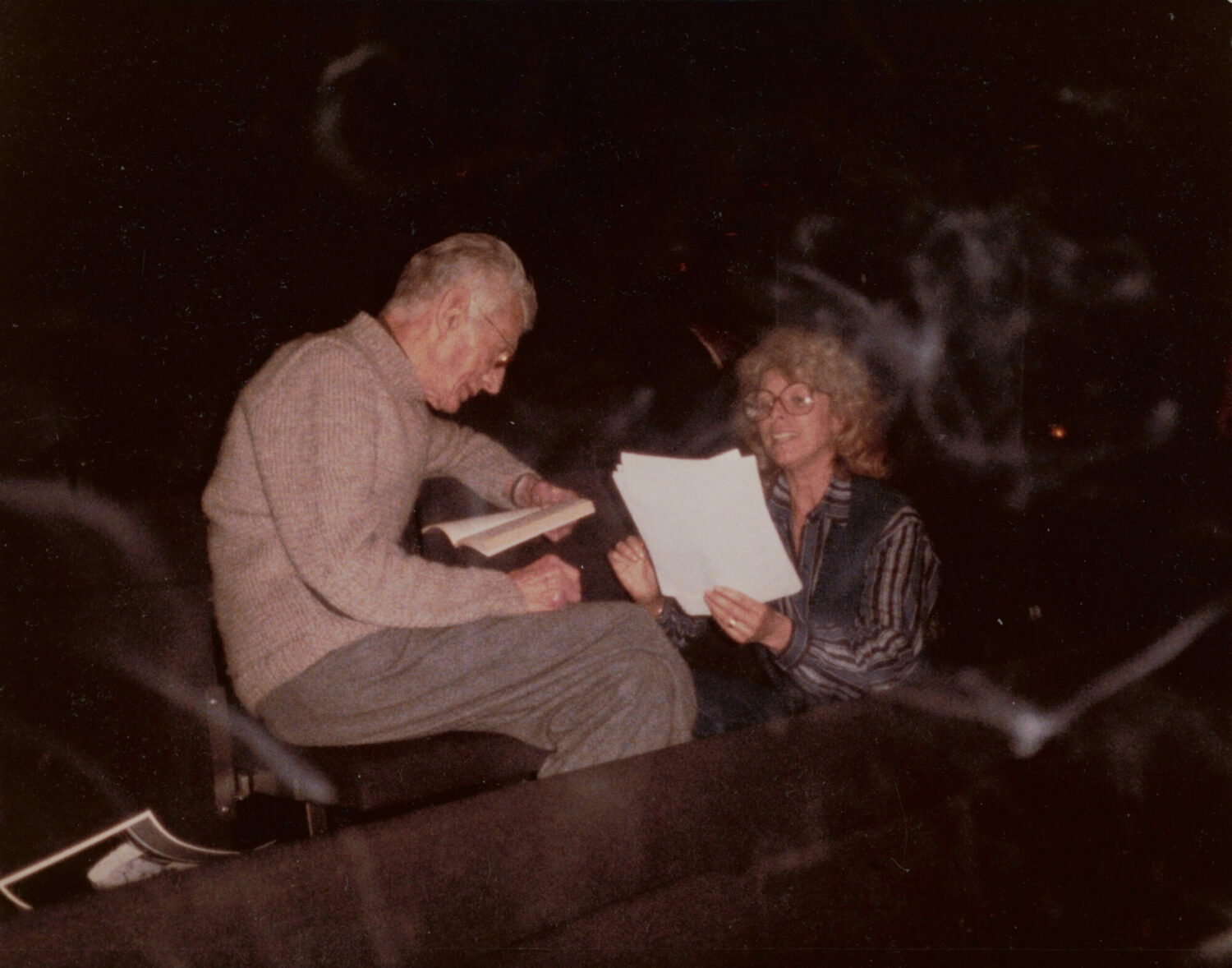
Inaugural Beckett Creative Fellows announced
The School of English at Trinity College Dublin is delighted to announce that it will be hosting Niamh Campbell and Nathan O’Donnell as the inaugural Beckett Creative Fellows this coming academic year, 2022-23.
This scheme is a collaboration with the Samuel Beckett Research Centre at the University of Reading, which has pioneered a series of Creative Fellowships since 2017. Through the fellowships at Reading and Trinity the rich collection of archival materials mapping Beckett’s creative process are made available to writers and artists, so that Beckett’s archive becomes a practical and inspiring creative workshop. As Beckett Creative Fellows Niamh Campbell and Nathan O’Donnell will produce original creative works that draw on traces and threads of Beckett’s ideas discovered in the archive.
Niamh Campbell won the Sunday Times Audible Short Story Award in 2020, and the Rooney Prize for Irish Literature in 2021. She has published two novels, This Happy (2020) and We Were Young (2022), a monograph on the writer John McGahern (Sacred Weather, 2019), and short pieces of fiction, non-fiction, academic criticism, and art writing for a number of journals in Ireland.
Niamh Campbell’s project takes as its point of departure notions of transcendent banality, eternal return, ideological and idiomatic limitation, habit and logjam, and compulsive or onanistic personal memory – ideas drawn from the Beckettian universe and important to her own work. The project is especially interested in looking at writerly ‘voice’ and expressive patterning as habitual or recursive phenomena by using recording devices, voice-to-text software, and vocal performances to develop and supplement the work.
Nathan O’Donnell is a writer and artist based in Dublin. He has published fiction and non-fiction in numerous journals including The Dublin Review, gorse, The Tangerine, and 3:AM, amongst others; he is also one of the co-editors of Paper Visual Art and he writes and publishes regularly in the field of contemporary art. He had his first solo exhibition at the Illuminations Gallery, Maynooth University, in 2020; he was writer-in-residence at Maynooth University, 2020–21; and he has also been awarded artist’s commissions – for publishing-based projects – from IMMA, Ormston House, Dublin City Council, the Arts Council, and South Dublin County Council.
Nathan O’Donnell will use this fellowship to develop a project titled ‘under all weathers’, responding to the Beckett archive through a meteorological lens – gathering weather data, meteorological references, and climate metaphors, from across Beckett’s work as well as his letters and other archival sources. O’Donnell is a writer with an interest in experimental publishing; his aim, with this project, is to produce a set of text scores which will be circulated within a pamphlet-style publication.
The Beckett Creative Fellowships at Trinity are coordinated by the School of English in partnership with The Library of Trinity College Dublin, Trinity Long Room Hub, and Trinity Centre for Beckett Studies. This project is a collaboration with the Beckett Creative Fellowships organised by the Samuel Beckett Research Centre at the University of Reading: https://research.reading.ac.uk/beckett/creative-fellowships/.
For further information contact Dr Julie Bates, School of English, Trinity College Dublin: batesju@tcd.ie

Archives
- March 2024
- October 2023
- September 2023
- May 2023
- March 2023
- February 2023
- December 2022
- October 2022
- September 2022
- June 2022
- March 2022
- February 2022
- October 2021
- August 2021
- June 2021
- May 2021
- April 2021
- March 2021
- February 2021
- January 2021
- December 2020
- September 2020
- February 2020
- October 2019
- July 2019
- April 2019
- November 2018
- August 2018
- July 2018
- June 2018
- June 2017
- May 2017
- November 2016
- November 2015
- August 2015
- April 2015
- December 2014
- October 2014
- April 2014
- November 2013
- September 2013
- July 2013
- May 2013
- April 2013
- July 2012
- May 2012
- May 2011
- March 2011
- May 2010
- December 2009
- June 2009
- April 2009
